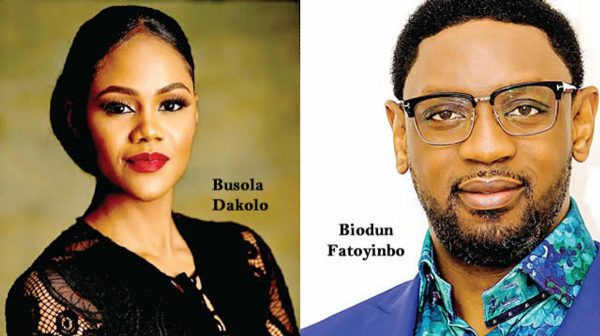DAKAR, (Thomson Reuters Foundation) – A rape accusation against a popular pastor in Nigeria has prompted a new #MeToo movement on social media with women sharing stories of sexual assault and calling for justice.
Photographer Busola Dakolo, the wife of a popular Nigerian singer, said in an interview on local television on Friday that pastor Biodun Fatoyinbo, the head of a large church in Abuja, had raped her when she was a teenager.
The story caught the public attention and people responded with outrage on Twitter and Instagram using the hashtags #MeToo, #ChurchToo and #SayNoToRape, in what activists said could be the start of Nigeria’s first major movement against sex abuse.
Hundreds of people protested on Sunday in major cities Abuja and Lagos. Dakolo’s husband, Timi Dakolo, posted an image on Instagram saying protests were planned for seven days.
“People were already angry that the government was not taking the issue of violence against women and girls seriously,” said Osai Ojigho, country director for human rights group Amnesty International.
 “So when Busola’s story broke out, people were like you know what, enough is enough.
“So when Busola’s story broke out, people were like you know what, enough is enough.
“This needs to stop. I think it’s been building up. It’s about time,” she told the Thomson Reuters Foundation.
The #MeToo movement began in the United States in late 2017 in response to accusations of sexual assault and harassment in the entertainment industry. It has since spread to other countries, though there has been little pick-up in Africa.
Nigeria had a small movement earlier this year in the mostly Muslim north to expose sexual abuse with the hashtag #ArewaMeToo, but it did not spread widely, said Ojigho.
Public frustration had grown with several incidents since last year, including reports that Nigerian soldiers had raped women fleeing violence in the north, and that police had sexually assaulted women in Abuja nightclub raids, she said.
Since Friday, women have come out with more allegations against pastors, but have also taken the movement beyond the church, she said.
“For the first time women are pushing issues to the forefront that are getting a lot of media attention,” she said.
“The challenge is to make sure it goes beyond that.”
Fatoyimbo, pastor of the Commonwealth of Zion Assembly (COZA) church in Abuja, denied Dakolo’s allegations in a statement on Instagram, but said he would be taking a leave of absence from the church.
He and Dakolo could not be reached for comment.
Nigeria, Africa’s most populous country, has a poor record on women’s rights and one of the lowest rates of female politicians in the world.





